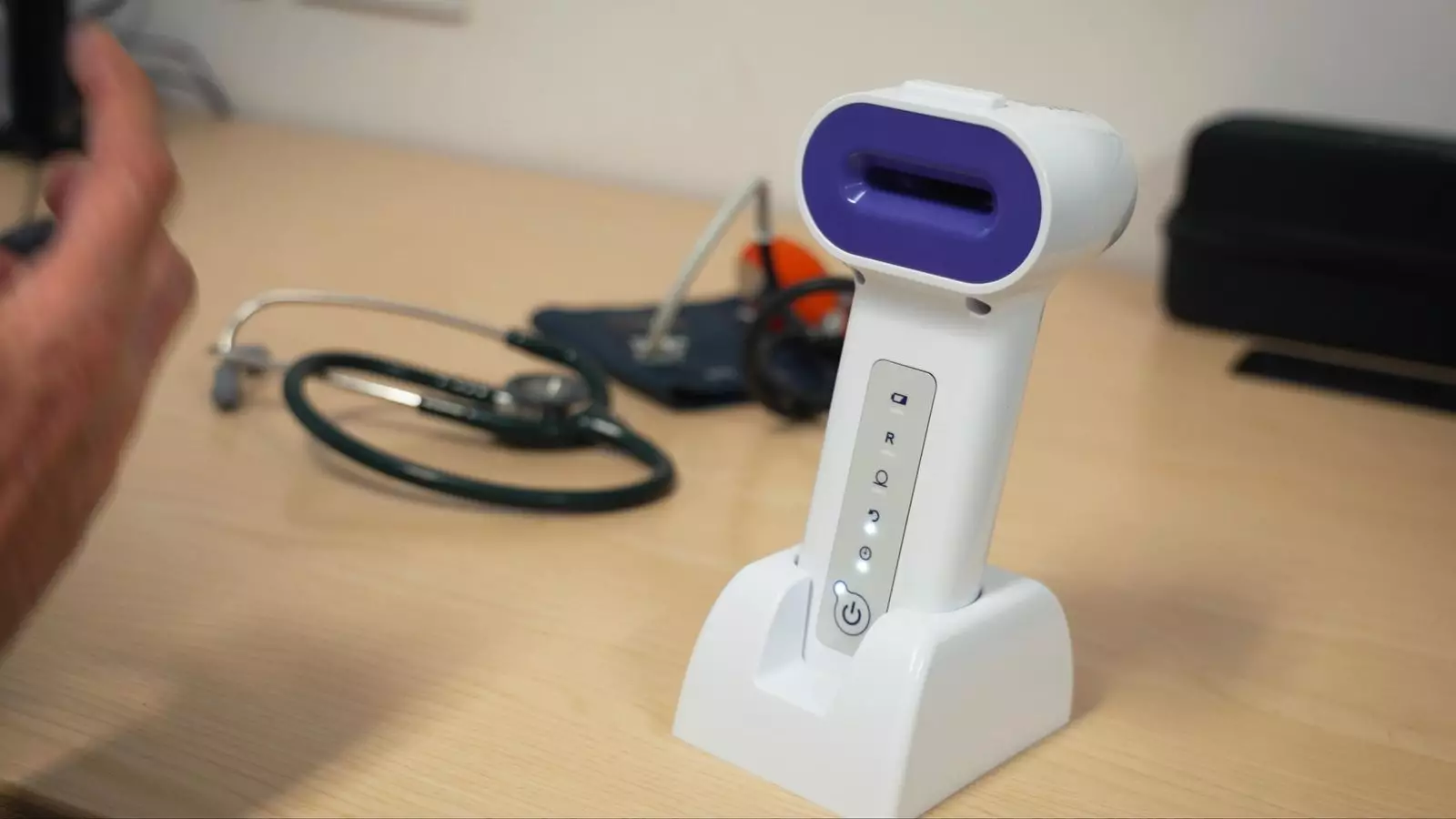Chronic Obstructive Pulmonary Disease (COPD) affects an astonishing 3 million individuals in the UK, yet two-thirds remain unaware of their condition. This staggering statistic points to a larger systemic problem: the invisibility of chronic illnesses and the lack of accessible diagnostic tools. COPD stands as the second most common cause of emergency hospital admissions, placing an unsustainable burden on healthcare systems, and that burden continues to grow. Given that 33% of those admitted by flare-ups have never even received a formal diagnosis, it becomes painfully evident that the current diagnostic methods are failing us.
Understanding and addressing this problem requires a radical shift in how we approach healthcare, particularly in terms of accessibility and timeliness. Traditional spirometry tests, long seen as the gold standard in diagnosing COPD, have myriad drawbacks. They require extensive time, specialist training, and are often limited to specific medical hubs. As a result, patients experience long wait times, exacerbating their already dire health concerns. With such shortcomings, is it any wonder that many people with COPD are unknowingly suffering in silence? This points to an urgent need for a transformation in diagnostic capabilities.
The Game-Changing Technology: N-Tidal Diagnose
Enter the N-Tidal Diagnose, a handheld device that promises to flip the script on COPD diagnosis. Imagine strolling into your doctor’s office and receiving a definitive diagnosis within five minutes—no more exhausting spirometry sessions, no more protracted wait times. Dr. Simon Rudland, a leading GP, encapsulates the excitement around this innovation, noting how it dramatically alters the pathway to treatment. With this new technology, the life-saving magic of quick diagnosis becomes a reality, allowing medical professionals to initiate treatment immediately. The fundamental shift it represents is revolutionary, not just for healthcare practitioners but crucially for patients whose lives may hang in the balance.
The streamlined process doesn’t just promise to improve the patient experience; it carries substantial implications for the economy of healthcare. Flare-ups—often the catalyst for hospital admissions—account for the majority of COPD complications. By catching the disease early and offering immediate treatment, the N-Tidal Diagnose could reduce hospital visits, better balancing the NHS budget in an era of fiscal austerity.
Real-World Impact: A Patient’s Perspective
Colin Best, a patient from Suffolk, is one such individual whose journey exemplifies the downsides of outdated diagnostic tools. He spent years struggling to articulate the severity of his symptoms and endured multiple spirometry tests before he received a confirmed diagnosis. His painful recounting of his experience—”It took me a year to convince them there was something seriously wrong”—reveals the struggles many face in navigating an often-complex healthcare system. The contrast between his arduous journey and the potential ease offered by the N-Tidal Diagnose serves as a powerful indictment of the old systems and a hopeful glance toward the future.
One of the fascinating features of the N-Tidal Diagnose is its integration of artificial intelligence. Patient data, collected from millions of breath samples, is analyzed in real time, allowing the machine to identify COPD amidst other respiratory conditions, including asthma and lung cancer. This level of sophistication not only improves efficiency but also enhances the accuracy of diagnoses. Surely, one must ask: why were we ever relying on a system that subjected patients to exhaustive, time-consuming tests? Given how much we invest in technologies across various sectors, healthcare should not lag in its embrace of innovation.
A Call for Broader Implementation
With approval from the EU already secured, there is a sense of urgency for the N-Tidal Diagnose to be implemented in medical practices across the UK. Skeptics may question whether such a leap in technology is feasible for everyday healthcare settings, but one of the most promising aspects of this device is its simplicity. With only ten minutes required to train staff, the barriers to adoption are significantly lowered. If the healthcare system is to advance, we must be willing to embrace these innovations and, equally crucial, ensure they are rolled out effectively and equitably.
The challenges we face in diagnosing diseases like COPD highlight a stark reality; the need for accessible and efficient healthcare is more pressing than ever. The N-Tidal Diagnose represents a critical step in addressing this urgent issue, breaking down barriers and offering hope to millions who struggle silently. While the technology advances, the healthcare system must also adapt, fostering an environment that can support these innovations to maximize their impact. The journey to better health and wellness starts with timely diagnosis, and it’s time we commit to making that a reality for everyone.


Leave a Reply